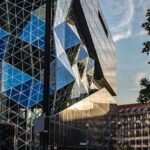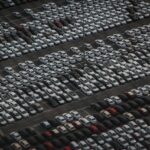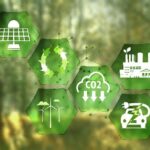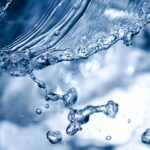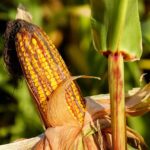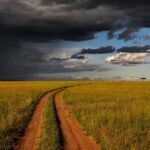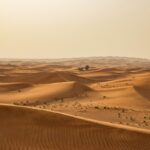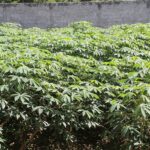Agriculture as the engine of the overall economy. Rwanda – A Model of Hope for Africa – Update 2021, by Thomas Wegener, Berlin
Rwanda, or Rwanda, is a densely populated landlocked country in East Africa. Due to its hilly landscape, it is also known as the „land of a thousand hills.“ Thanks to steady economic growth of about eight percent from 2001 to 2015, Rwanda is one of the fastest growing countries in Africa. About 75 percent make their living directly from agriculture, as well as from marketing and processing the products. Products grown include beans, sorghum (millet), cassava, maize, sweet potatoes, tomatoes carrots, kale, peanuts and tropical fruits for example. Cleanliness and order have become more important in Rwanda in recent years. Waste management in particular has been greatly reformed, resulting in Rwanda being known as one of the cleanest countries in Africa. Through clear goal setting and resulting actions, it has been possible to make significant progress. In many respects, the state struggles between tradition and modernity. In topics such as economic growth, the expansion of information technologies and ecology, Rwanda shows itself to be very future-oriented.
Environmental law
An environmental law was passed in 2005 and the environmental authority REMA was founded a year later. Guidelines, campaigns, controls and scientific research are the main components of the environmental policy. One of the most significant laws passed is the plastic bag law, which is also being implemented with great consistency. Several large bakeries in the capital Kigali had to pay heavy fines because they wrapped their bread in cellophane foil. With the help of environmental management at both the political and local levels, a change in awareness has been achieved in society. Of course, not everything works one hundred percent, it must not be ignored that it is still a developing country. There will always be people who burn their garbage because they don’t understand the impact it has on the environment. In addition to not knowing, people cannot afford proper garbage collection because of the financial situation. The goal is to minimize this behavior, thus one would take a big step towards environmental protection. The East African state wants to be a role model and must manage to sensitize the population when it comes to environmental protection. Due to the strong controls and the consistency of the government, it has already been achieved that countries like Uganda, Morocco, Eritrea or Congo have also enacted the anti-plastic law. In view of the still strong poverty, the question naturally arises whether environmental policy is really one of the most important fields of action.
Water for Rwanda
 Water, for example, is defined as a basic human need and accordingly counts as a fundamental human right. Despite this, two-thirds of the population do not have access to clean water. Even when water sources are available, they are sometimes several kilometers away from the towns where people live, which means that children and women have to travel these distances every day to get water for their families. The hygienic conditions at schools also pose a major problem, with only one in five schools in the country having a toilet. However, one of the biggest challenges is medical care. There are approximately 18,000 inhabitants for every doctor. Despite this, it must be taken into account what milestones Rwanda has already mastered. Much progress has been made in the last ten years. Almost twenty years after the 1994 genocide, the country is one of the few in Africa that could achieve some of the Millennium Development Goals. Such as „education for all.“ Infant mortality is also declining and more and more people can be lifted out of absolute poverty. It’s a dynamic that experts say is missing in most other African countries. Rwanda expert Alexander Stroh of the Hamburg Institute for African Studies can understand the growing interest in environmental policy despite the many other construction sites.
Water, for example, is defined as a basic human need and accordingly counts as a fundamental human right. Despite this, two-thirds of the population do not have access to clean water. Even when water sources are available, they are sometimes several kilometers away from the towns where people live, which means that children and women have to travel these distances every day to get water for their families. The hygienic conditions at schools also pose a major problem, with only one in five schools in the country having a toilet. However, one of the biggest challenges is medical care. There are approximately 18,000 inhabitants for every doctor. Despite this, it must be taken into account what milestones Rwanda has already mastered. Much progress has been made in the last ten years. Almost twenty years after the 1994 genocide, the country is one of the few in Africa that could achieve some of the Millennium Development Goals. Such as „education for all.“ Infant mortality is also declining and more and more people can be lifted out of absolute poverty. It’s a dynamic that experts say is missing in most other African countries. Rwanda expert Alexander Stroh of the Hamburg Institute for African Studies can understand the growing interest in environmental policy despite the many other construction sites.
The transformation from an agrarian to a service economy is overtaking many Rwandan citizens in their understanding of environmental protection. Development always has a negative impact on nature and resources. However, Rwanda shows that with the right measures, negative impacts can be reduced.
Responsible in terms of the press law:
Kingsley Ekwueme
Managing Director
GrowExpress Ltd.
The GrowExpress office located in Nigeria Cocoa House, Dugbe, 200263 Ibadan, Nigeria. Completed in 1965 at a height of 105 meters, Cocoa House was once the tallest building in Nigeria and the first skyscraper in West Africa. It is located in Dugbe, one of the main commercial areas in Ibadan, Oyo State, Nigeria.
PRESSEKONTAKT
GrowExpress Limited
Kingsley Ekwueme – Managing Director
Cocoa House, Dugbe
200263 Ibadan, Nigeria
Website: https://growexpress.org
E-Mail : AtYourService@growexpress.biz
Telefon: +234 7031135981
